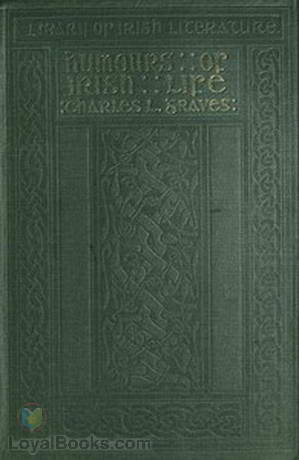|
Books Should Be Free Loyal Books Free Public Domain Audiobooks & eBook Downloads |
|
|
Books Should Be Free Loyal Books Free Public Domain Audiobooks & eBook Downloads |
|
Humours of Irish Life By: Various |
|---|

Humours of Irish Life is a delightful collection of short stories that offers readers a captivating glimpse into the intricacies of Irish culture and the idiosyncrasies of its people. Crafted by various talented authors, the book skillfully weaves together humorous anecdotes, witty observations, and poignant moments to create a truly engaging reading experience.
The stories within this anthology are diverse in their themes and settings, painting a vivid picture of Irish life in all its richness. From rural villages to bustling cities, the book traverses different landscapes, showcasing the distinct nuances of Irish society. With each tale, the authors effortlessly transport readers into the heart of the Irish experience, allowing us to immerse ourselves in the intricacies of Irish humor and character.
What sets this collection apart is its ability to capture the essence of Irish life with such authenticity. The authors have a deep understanding of their subjects, evoking emotions and provoking laughter through their clever storytelling. Each story is imbued with a keen eye for detail, bringing to life vivid images of the landscapes, traditions, and quirks unique to Ireland.
Humour, as the title suggests, forms the underlying thread that connects these stories. Whether it's the humorous mishaps of bumbling characters, the witty banter between friends, or the comical miscommunications that arise in everyday situations, the book constantly elicits laughter. The clever wordplay and unexpected twists keep the reader enthralled, constantly surprising us with their cleverness.
However, amidst the laughter and lightheartedness, some stories reveal a deeper, more contemplative side. These tales explore themes such as love, loss, and the introspection that comes with self-discovery. They offer moments of introspection, reminding us that behind the laughter, there is a profound humanity that binds us all.
While the anthology showcases the work of various authors, the stories seamlessly blend together, resulting in a cohesive narrative that paints a comprehensive picture of Irish life. Whether it's the charming storytelling of one author or the witty dialogue of another, each contribution adds its own unique flavor to the collection, creating a varied and immersive reading experience.
Humours of Irish Life is a testament to the richness and diversity of Irish storytelling. It not only entertains but also provides an insightful exploration of the Irish psyche, capturing the essence and spirit of the people. This anthology is a must-read for those who enjoy witty humor, charming characters, and a glimpse into the beautiful tapestry that is Irish life. [Illustration: Frank Webber wins the wager Drawn by Geo. Morrow ] HUMOURS OF IRISH LIFE WITH AN INTRODUCTION BY CHARLES L. GRAVES, M.A. [Illustration: Fiat Lux] NEW YORK: FREDERICK A. STOKES COMPANY PUBLISHERS PRINTED BY THE EDUCATIONAL COMPANY OF IRELAND LIMITED AT THE TALBOT PRESS DUBLIN Introduction. The first of the notable humorists of Irish life was William Maginn, one of the most versatile, as well as brilliant of Irish men of letters. He was born in Cork in 1793, and was a classical schoolmaster there in early manhood, having secured the degree of LL.D. at Trinity College, Dublin, when only 23 years of age. The success in "Blackwood's Magazine" of some of his translations of English verse into the Classics induced him, however, to give up teaching and to seek his fortunes as a magazine writer and journalist in London, at a time when Lamb, De Quincey, Lockhart and Wilson gave most of their writings to magazines. Possessed of remarkable sparkle and finish as a writer, considering with what little effort and with what rapidity he poured out his political satires in prose and verse, and his rollicking magazine sketches, it was no wonder that he leaped into popularity at a bound... Continue reading book >>
|
| eBook Downloads | |
|---|---|
|
ePUB eBook • iBooks for iPhone and iPad • Nook • Sony Reader |
Kindle eBook • Mobi file format for Kindle |
|
Read eBook • Load eBook in browser |
Text File eBook • Computers • Windows • Mac |
| Review this book |
|---|